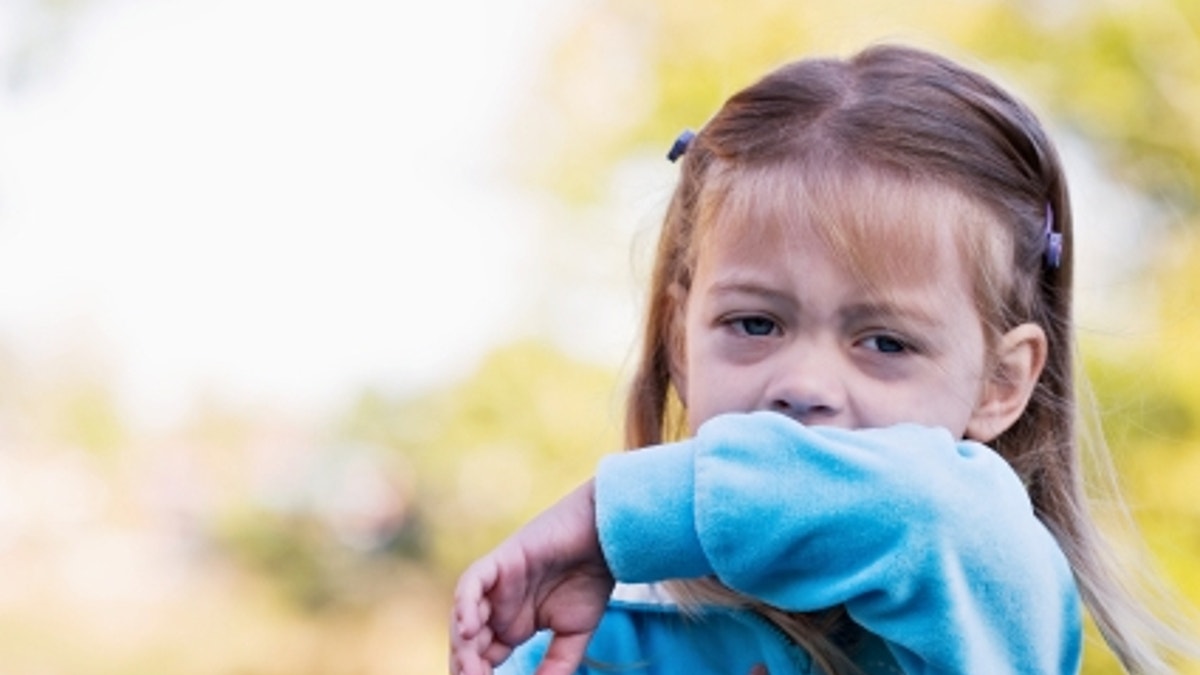
Children in Denmark who were diagnosed with pertussis, or "whooping cough," in early childhood appear to have an increased risk of epilepsy later in childhood, according to a new study.
"Although the association we identify may be important on a population level, the individual child admitted to hospital with pertussis will have a very low risk of epilepsy," said lead author Dr. Morten Olsen of the Aarhus University Hospital in Denmark.
Pertussis is an acute respiratory infection common in childhood, affecting about 16 million people per year. The resulting coughing spells are so bad that it is hard for infants to eat, drink, or breathe. The spells can last for weeks and may lead to pneumonia, seizures, brain damage and even death, according to the Centers for Disease Control and Prevention (CDC).
In the U.S., children get five doses of pertussis vaccine as part of the DTaP schedule, at two, four, six and 18 months of age and at four to six years. These shots also protect against diphtheria and tetanus, other bacterial diseases.
For the new study, researchers used a national database in Denmark to identify all 47,000 patients born between 1978 and 2011 who had been diagnosed with pertussis, about half of whom were diagnosed before six months of age.
Compared to a group of similar people matched by sex and year of birth, the individuals who had been diagnosed with pertussis had a higher risk of childhood epilepsy.
Close to one percent of those in the comparison group had an epilepsy diagnosis by age 10, compared to 1.7 percent of those in the pertussis group, researchers report in JAMA.
Children diagnosed with pertussis after age three were not at increased risk for epilepsy, the authors found.
About 1.8 percent of adults in the U.S., or 4.3 million people, had a diagnosis of epilepsy or a seizure disorder in 2013, according to the CDC. It can be treated with anti-seizure medications or other management techniques.
It's possible that low blood oxygen levels due to coughing fits as a young child may damage the brain and increase epilepsy risk later, said Dr. Eugene D. Shapiro of the Yale School of Public Health in New Haven.
Shapiro was not part of the study in Denmark.
It is also possible that severe coughing could lead to increased pressure in the blood vessels in the brain and possible bleeding that can lead to neuronal damage, Shapiro told Reuters Health by email.
This is not a very strong association, but there can be many other complications of pertussis, which are all good reasons to continue vaccinating our children, he said.
"It seems plausible that epilepsy would occur in children who had pertussis early in life," and the infection may also increase the risk of other brain complications like mental retardation, said Dr. James D. Cherry, professor of pediatrics at the David Geffen School of Medicine at UCLA in Los Angeles who was not part of the new study.
"Presently we're recommending vaccinating all pregnant women, so the antibodies transmitted from the mother would prevent pertussis" in infancy, helping to cover the gap between birth and first vaccine dose at age two months, Cherry told Reuters Health by phone.








































